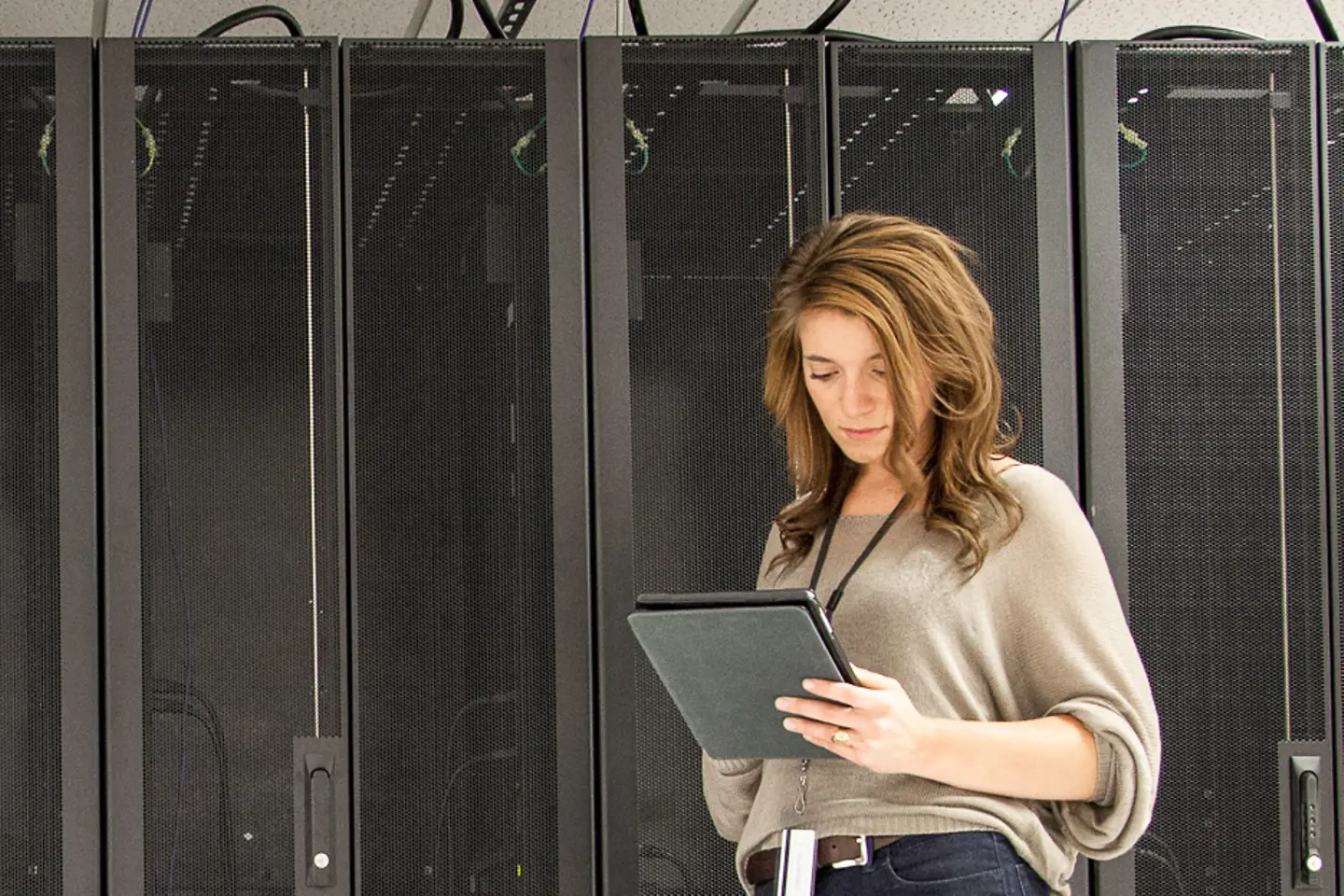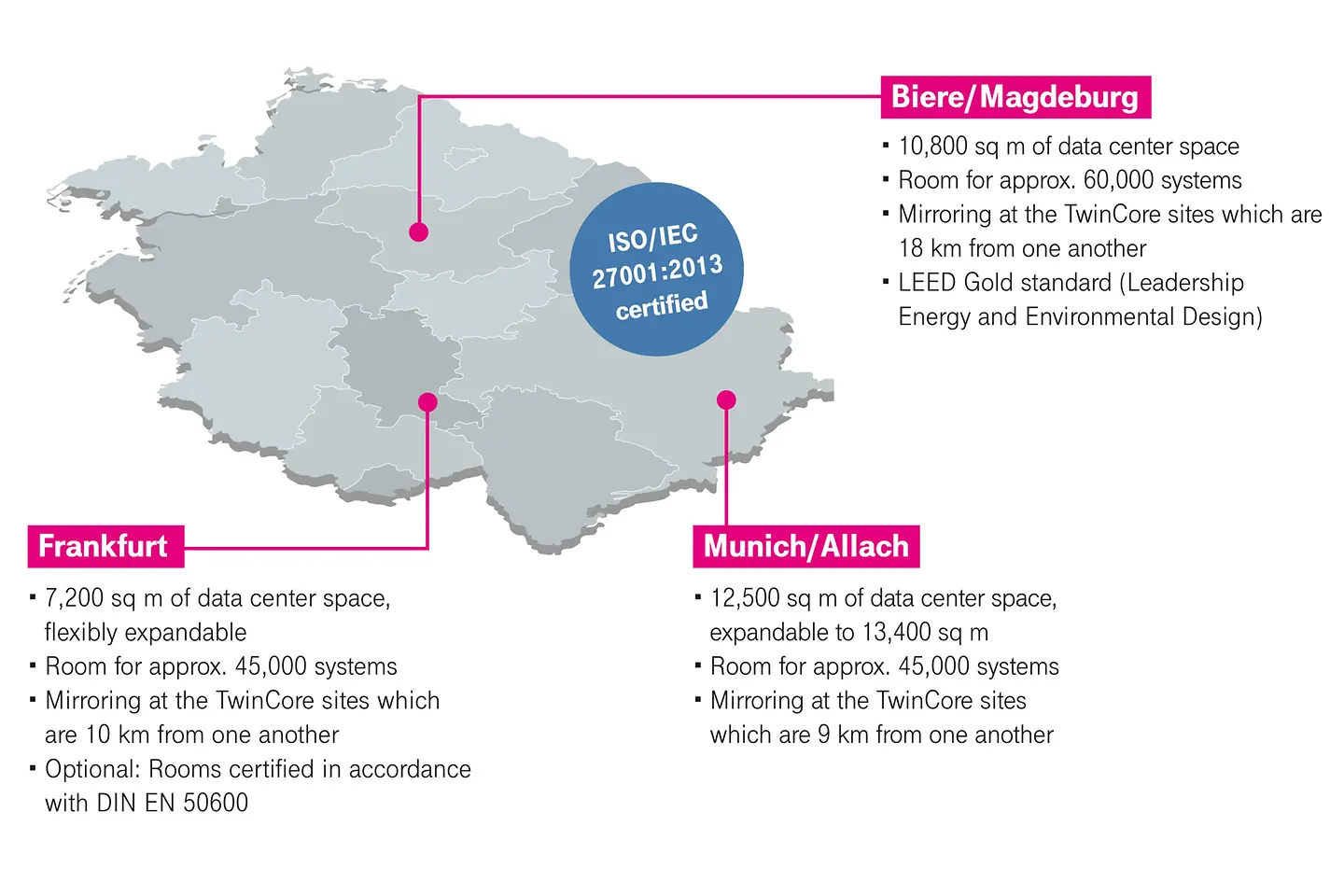
For companies that do not want to operate an on-premises data center or prefer to give up their existing data center, there is an alternative: co-location. The data center is set up with an IT provider, while the server operation remains in the hands of the outsourcer. Co-location can be used for business continuity and disaster recovery.

Co-location has turned out to be an alternative for the self-operation of a data center. It is the right choice for companies that operate their own IT, but do not want to be burdened with data center infrastructure. With co-location, the user company retains complete access to the hardware, but is no longer burdened with Facility Management. Maintaining owned buildings for the operation of IT resources is no longer needed, including physical security, fire protection, (emergency) power supply and air conditioning. A co-location provider like T-Systems can takes this over, making space available at its own data center premises. In addition, energy-efficient co-location data centers offer the opportunity permanently reduce costs.
The ready-to-go data center space includes redundant power and air conditioning supplies, including a self-sufficient emergency supply, excellent network and grid connections and separate fire protection zones. T-Systems guarantees the security standards, certified operation and modern structural design – basically everything that would also apply to one's own data center space.
Co-location is a useful addition even for modern sourcing concepts: Legacy systems that have yet made the leap to the cloud can be parked in co-location data centers. This also applies to companies that set up or renovate their own data centers. As new BSI guidelines stipulate increased geo-redundancy, IT managers need to develop new strategies for business continuity. And co-location is an excellent choice here as well: as an additional area for disaster recovery or backups.

Only a few companies know the total costs of ownership (TCO) of their data centers, meaning the total costs for acquisition and operation. And yet the TCO is the most important factor for a decision in favor of co-location, even if a blanket one-to-one comparison with self-operation is difficult. Co-location is about the ratio of CAPEX to OPEX. While the investment expenses drop, the operating costs can rise. The costs for infrastructure management become transparent for the first time in many companies. Direct cost advantages result primarily from energy-efficient data centers.
Beyond the original co-location portfolio, some service providers offer additional services such as encryption hardware, planning, cabling and connecting to various cloud providers as well as network services. It's possible the servers of the cloud providers will even be in the neighboring room. The selection of a co-location provider furthermore opens the opportunity for a more high performance network connection of IT services. Up to 240 GB/s are possible.

T-Systems data centers in Munich, Frankfurt and Magdeburg/Biere meet the highest security and management standards. If desired, T-Systems can add further IT services to its co-location services: broadband network connections, conception, security design and on-site services. In the co-location model, user companies retain full control over their IT down to the infrastructure level, meeting all regulatory requirements for IT operations. The data center network also allows the geo-redundant operation of IT in accordance with the recommendations of the BSI (Federal Office for Information Security) published in 2018. The BSI raised the minimum distance for geo-redundancy to 100 kilometers. The recommendation is actually 200 kilometers. For distances over 100 kilometers the packet running times in active/active-clusters are so great that real-time synchronization is not possible. Therefore with a distance of 200 kilometers, only a backup data center can be considered.
Business-critical IT systems need a redundant, fail-safe (Disaster Recovery D/R) setup for failover or fallback scenarios. If one part of the cluster fails, the other takes over with a minimal RPO/RTO (Recovery Point Objective, Recovery Time Objective), in order to ensure business continuity. Customarily the two D/R clusters are built in different data centers, or at a minimum, in different fire protection zones. Co-location is a general option for redundancy. The primary systems of the company are operated in their own data center while the D/R mirror is in a suitable colocation DC.